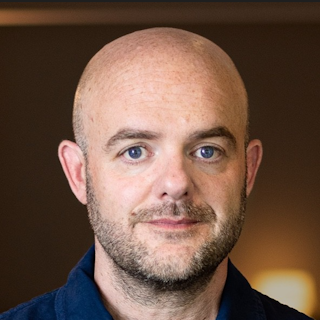As we’re not investing in young creatives, we deserve the coming AI storm
Fold7’s Dave Billing worries that there will be a shortage of creatives in the UK due to years of sector neglect and budget cuts. You won’t like what happens next.

Advertising has long been an industry full of middle-class wankers. I should know. I am one. I’m part of the problem. No one will be shocked to hear that, but the middle-class wanker problem now appears to be tipping over into a full-blown crisis. Recent research shows that 52% of our industry’s current workforce is from wealthier socio-economic backgrounds, compared with 38% across all industries. In London, the odds of working in the creative industries as a white, privileged person are one in five – double the chance of those from ethnic minority, working-class backgrounds also living in the capital. And things are only going to get worse.
And right now, the future looks bleaker still. Because while Rishi would have us wrangling algebra all the way up to A level - in word and deed, this government says: creative subjects don’t matter. The £25bn it contributes to the UK economy be damned.
Continual underfunding of creative subjects in schools is killing UK creativity. Since 2010, enrollment in arts GCSEs has fallen by 40%, and the number of arts teachers has fallen by 23%. This shift is most pronounced among state schools in deprived areas. Meanwhile, private schools have invested substantial resources in art and music provision, according to research from Warwick University. As fewer state students can engage with arts or music, fewer go on to study these subjects at A-level or university. Only 17% of the graduate population are creative graduates.
And the problem doesn’t stop at the school gates.
Creativity, a pursuit of the privileged?
We’ve commissioned new research that shows huge disparities between households earning the national average income and those earning over £100k. Unsurprisingly, kids in wealthy homes enjoy the same or more opportunities for extracurricular creative pursuits like music or drama than before the cost of living crisis.
By contrast, almost three-quarters of families living on a national average income have either never done any of the above or are doing it less since household budgets have had to tighten.
That’s our industry’s lifeblood drying up. It’s a choir of diverse voices with all sorts of different life experiences, rendered into a solo autotuned melody that sounds a lot like the home counties. It’s a generation of children who are told that creativity is not for you, it’s not important, it’s not accessible.
Maybe we in advertising deserve a future where AI does all of the jobs because we’re sure as shit not laying the ground for a richer alternative.
But there’s another story emerging. Advertising has long been an industry full of middle-class wankers. I should know. I am one. I’m part of the problem with this industry. But I can be the solution because I am, like many of you reading, a parent. And as such, maybe I can help.
Our research indicates that there’s an increasing recognition of the importance of art and creativity in various professions and industries among parents. 98% of parents we surveyed thought it important that their children take part in creative activities. And 68% of parents agreed that a future career in the creative industry is a good thing to aspire to. Interestingly, this last statistic barely changed across a wide range of household incomes and regions across the UK.
It’s important because anything that gets creativity to shrug off its apologetic mantle as a hobby, as a recreational distraction from ‘sensible’ career choices, as an impediment to earning a proper wage, is a good thing. As the boomer belief in climbing the corporate ladder has been discredited by the realities of late-stage capitalism, perhaps a career in creativity is as worthy as any. It’s on parents like me to carry on removing the stigma from creative jobs. It’s a good start, but there’s a mountain above us.
How to support creative education
There’s a lot more we can do, individually and collectively. Adland needs to keep supporting initiatives like Advertising Unlocked and Speakers for Schools, which raise awareness of creative industries within schools. We can work with bodies like UKAEG to help keep proving the value of the creative industry to bodies like the Department of Trade. We can support charities like Create, whose mission is to use the creative arts to connect, empower, inspire and upskill society’s most disadvantaged and vulnerable people, raising aspirations, building self-esteem, reducing isolation and enhancing well-being.
Our passion for this issue gave rise to our new children’s book, ‘Foxes Don’t Paint,’ which we’ve written, published, and are distributing to schools in our borough and schools in Liverpool and Birmingham. Among the pretty words and illustrations is a story that we hope will help parents to empower their children to see their creativity as valuable. No matter what the world, or Rishi Sunak, tells them.
Whatever we do, we mustn’t see our collective task as somehow merely preserving what working-class representation is left in our industry. We’re blowing on embers here. We need to start a fire.

